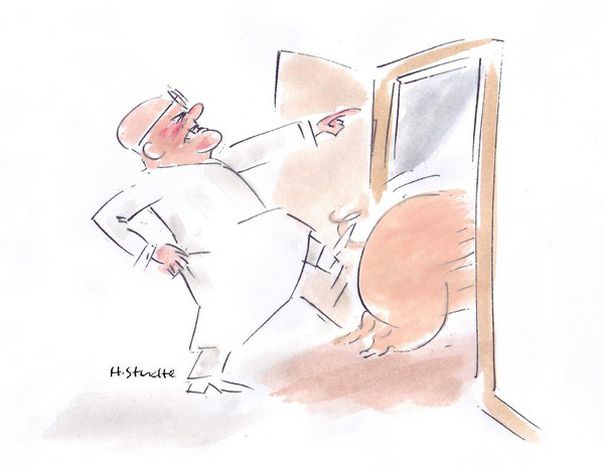
Boo to Europe's flu
Published on
Translation by:
 Darren Thompson
Darren Thompson
The German saying 'to have a pig' (Schwein gehabt) means that you're lucky. But the swine flu outbreak in late April hasn't meant the same, having threatened to become a pandemic. A European guide to Polish, English and expressions for those who have caught the language virus
Flu is everywhere. The word has invaded media, scientific and political spheres so much so that we've almost forgotten the awful 'crisis': a third of the population could come down with flu
is everywhere. The word has invaded media, scientific and political spheres so much so that we've almost forgotten the awful 'crisis': a third of the population could come down with flu . There have been over 5, 500 thousand swine flu cases in 33 countries. Fortunately, the outbreak of this virus has not led to people dropping like flies
. There have been over 5, 500 thousand swine flu cases in 33 countries. Fortunately, the outbreak of this virus has not led to people dropping like flies , comparable to that of the grippe espagnole
, comparable to that of the grippe espagnole![]() , the 'Spanish flu' which decimated Europe at the start of the twentieth century.
, the 'Spanish flu' which decimated Europe at the start of the twentieth century.
Etymologically speaking, it is believed the word 'flu' dates back to the first outbreak of the virus in 1743. 'Flu' derives from the Italian phrase influenza di freddo ('the influences of cold'), based upon its seasonal character. In French they say that avoir quelqu'un en grippe (to have someone in flu) is the same as catching or coming down with the flu. Grippe
('the influences of cold'), based upon its seasonal character. In French they say that avoir quelqu'un en grippe (to have someone in flu) is the same as catching or coming down with the flu. Grippe is a word derived from the German verb grippen, meaning to seize. It’s therefore not us that catch the flu, but the flu that catches us, as the Poles say: złapała mnie grypa:i got caught by the flu! Ironically, the German expression Schwein gehabt
is a word derived from the German verb grippen, meaning to seize. It’s therefore not us that catch the flu, but the flu that catches us, as the Poles say: złapała mnie grypa:i got caught by the flu! Ironically, the German expression Schwein gehabt ('had a pig') is used when you are lucky - so the connotation of swine + flu is not nearly as negative as it has become today.
('had a pig') is used when you are lucky - so the connotation of swine + flu is not nearly as negative as it has become today.
Translated from En grippe


